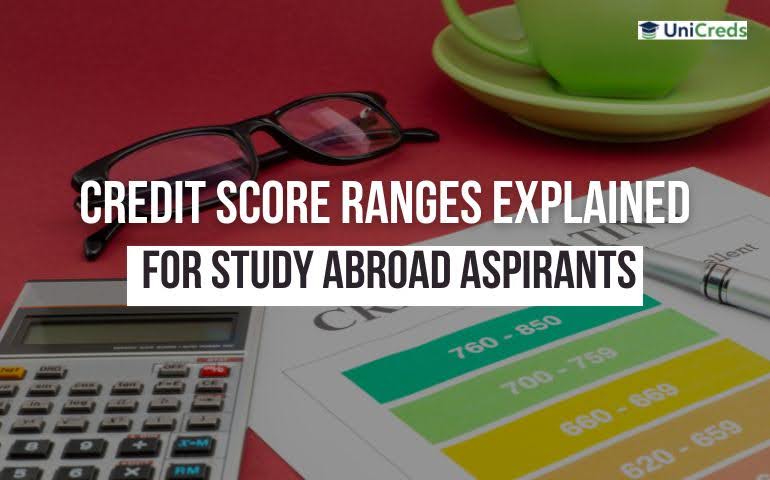Table of Contents
Many students today dream of studying in the UK, USA, or any other country by taking education loans. At times of inflation, interest rates rise, making education loans very expensive. Based on RBI guidelines, interest rates are revised every quarter. This is why there are chances that the interest might rise with rising inflation. This is how inflation affects the entire education loan amount, repayment, EMIs, etc. In this blog, let’s understand inflation and its effects on education loans.
Key Takeaways:
- Inflation increases the interest rates and total cost of education in India and abroad.
- Increased loan payments, debt pressure, and fluctuating interest rates affect borrowers with variable loan rates.
- Fixed loan rates are safer when it comes to inflation as the repayment of these loans devalues over time, and the amount to be repaid is constant.
- Banks offer income-driven repayment plans, loan consolidation, and loan forgiveness programmes to combat inflation.
- Negotiating loan terms first-hand for lower interest rates and proper repayment plans to combat inflation is better.
Meaning Of Inflation
Inflation is an increase in the prices of goods and services in an economy over a period. It reduces the power to purchase any currency. Inflation can happen due to increased demand and decreased supply of goods and services in the country.
In our country, inflation affects higher education loans mainly in two ways. First, interest rates increase. Second, inflation impacts the amount of money that needs to be borrowed to cover the increased cost of education, as tuition fees, accommodation expenses, transportation costs, etc. increase.
Effects Of Inflation On Education Loans
Inflation affects not just the new borrowers but also the existing borrowers, as the increase in interest rates, in the case of variable loans, can spike the interest amount and affect the future EMIs of the existing loan borrowers. Let’s see in what ways inflation can impact your education loans in the list given below:
Impact Of Inflation On Variable Rate Education Loans
Variable education loan interest is student loans where the interest rate can fluctuate over time. The interest rate is tied to a benchmark rate. As that benchmark rate increases or decreases, the loan’s interest rate will adjust periodically (monthly, quarterly, annually, etc.) Given below are the effects of inflation on variable-rate education loans:
Interest Rates
Many student loans come with a floating rate of interest, so it will change every quarter. This is one of the biggest worries about inflation and education loans. Central banks may raise interest rates when inflation is high. Those higher interest rates can make loan repayment harder for borrowers. Therefore, negotiating the interest rate properly while choosing your lender will ensure fluctuations won’t affect you much.
Increased Debt
Inflation can increase the overall educational costs, such as living expenses if you opt for studies abroad, books, tuition fees, travel expenses, etc. As a result, students might borrow more money and find themselves in higher debt after graduation. Guess what? It will ultimately affect the repayment cycle.
Effect On Loan Repayment
If you are considering studying abroad, the first thing that might come to your mind is the cost of living. Inflation can increase the cost of living and travel expenses globally, too! This can lead to existing student borrowers borrowing top-up loans or new borrowers borrowing increased loan amounts, which will lead to increased EMI and interest payments during the repayment tenure.
Impact Of Inflation On Fixed Rate Education Loans
The interest rate remains constant throughout the repayment period in fixed-rate education loans. This means that the borrower’s monthly payment amount will not change due to fluctuations in interest rates. In the case of fixed-rate education loans, inflation has a positive effect. Let’s see how:
Say you took a Rs. 20,000 student loan with 5% interest and ten years to pay it back. You would pay about Rs. 212 per month.
Let’s say inflation is 3% a year. You’re still paying Rs. 212 a month, but inflation decreases the value of that payment every year. That means your Rs. 212 payment becomes less valuable over time.
| In a nutshell…📝 Borrowers with fixed-rate loans can benefit from inflation because they pay back less over the loan’s lifetime. If inflation decreases the value of the currency, the fixed loan payments become easier to manage. |
Consider the Rs. 20,000 loans mentioned above with a 3% inflation rate. In the first year, you’d pay Rs. 212 a month in today’s rupee value. After ten years, that same Rs. 212 payment would be worth about Rs. 165 in today’s rupee (assuming 3% inflation).
This means that over the 10 years, you would have paid back less than the original Rs. 20,000 loan amount.
Bank Initiatives To Combat Student Loan Inflation
Many banks and non-banking financial companies (NBFCs) offer students higher study loans in India. They offer competitive interest rates and flexible repayment options. Given below are some of the ‘safety nets’ provided by the banks, especially for student loans:
- Income-Driven Repayment Plans (IDRs): Those with federal student loans can enrol in income-driven repayment plans, which tie their payments to their discretionary income. With inflation and career growth, incomes tend to rise over time, so IDRs adjust accordingly, reducing inflation’s impact.
- Loan Consolidation: Multiple student loans can be consolidated into one fixed-rate loan. This can help lock in a fixed rate and prevent future rate increases.
- Loan Forgiveness Programmes: After meeting specific requirements, borrowers may qualify for loan forgiveness programs for certain professions, like teaching. Using these programmes, you can wave off your remaining loan balance, effectively reducing the effects of inflation.
How Can You Reduce The Effects Of Inflation On Student Loan?
To make your education loans inflation-proof, you can opt for a fixed-rate education loan. You should also aggressively repay your loans, as the faster you repay, the less time inflation has to affect your loan amount. Lastly, always negotiate for the best loan terms, repayment plans, and interest rates with your bank. The lower the interest rates, the more capable you are of repaying them in times of inflation.
UniCreds will help you negotiate better student loan terms, interest rates, and processing fees! We have partnered with the top banks in India to give you the best deal. Contact us today!
FAQs
Q1. What will happen to education loans during inflation?
Inflation increases the overall costs of goods and services, including interest rates and educational costs. Thus, interest rates will increase, affecting the repayment of existing borrowers and increasing the borrowing amount of new borrowers.
Q2. Does the repo rate affect education loans?
Yes, the repo rate can affect education loans, particularly variable ones.
Q3. How does inflation hurt borrowers?
Due to higher interest rates in inflation, existing borrowers must repay higher loan amounts, and new borrowers must borrow more to cover increased educational costs.
Q4. How is the interest rate affected due to inflation?
During inflation, interest rates increase, making the entire education loan expensive.










Your point of view caught my eye and was very interesting. Thanks. I have a question for you.